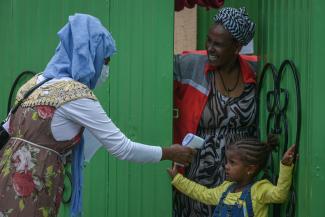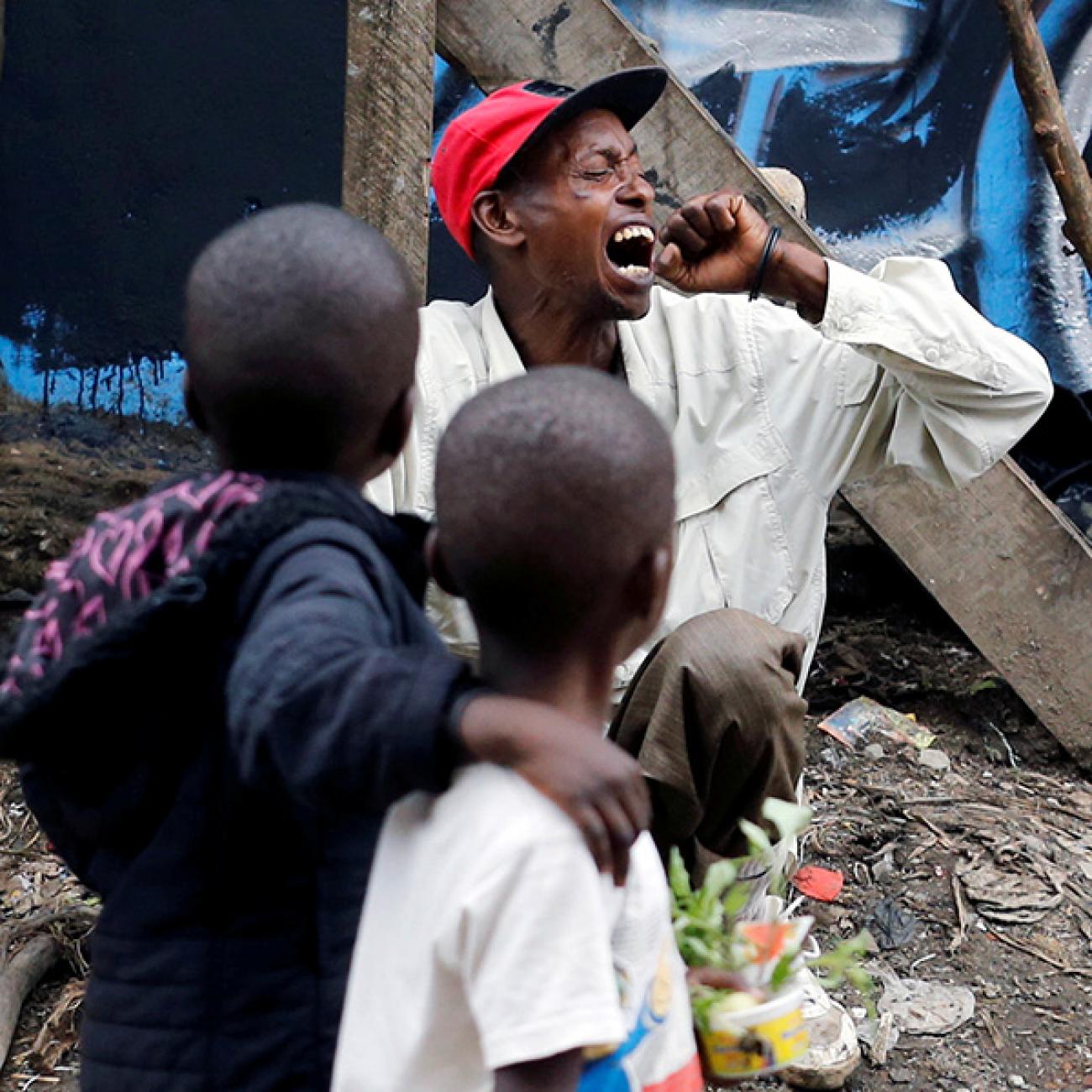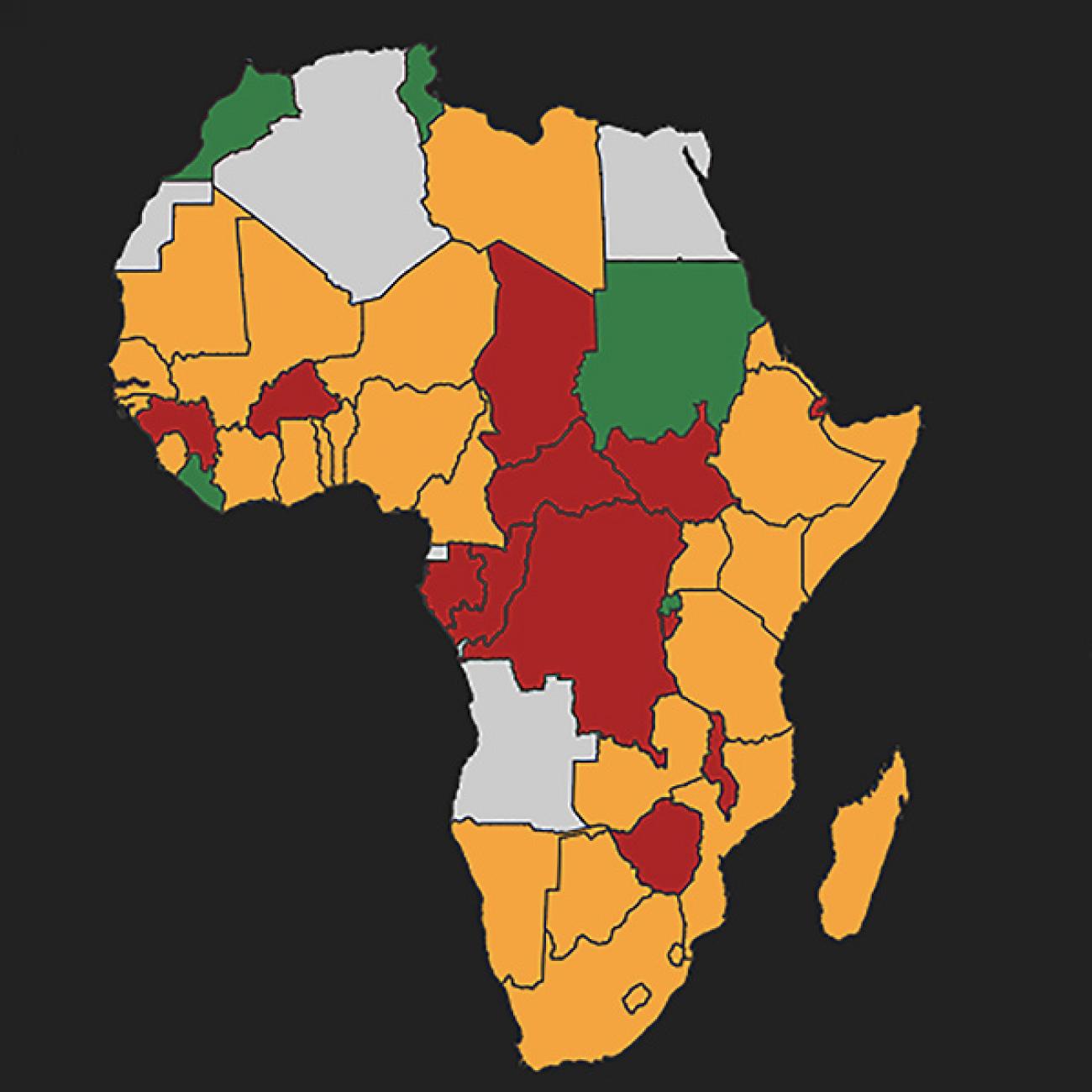Ethiopia is the second-most populous nation in Africa and is on an encouraging path towards moving millions of its people out of multidimensional poverty, evidenced by its steady economic growth in GDP, income per capita and other metrics. However, COVID-19 is now challenging the strides that Ethiopia has made towards becoming a beacon of sustainable and inclusive socioeconomic growth.
COVID-19 has affected the public health, economy, and sociopolitical dynamics of every nation, and Ethiopia is no exception. The virus puts a particular strain on Ethiopia’s economy and health-care system—the latter which is not in a position to withstand the burden of COVID-19. Ethiopia’s strategy for combating COVID-19 relies on the unwavering solidarity exhibited among stakeholders and multisectoral task teams and its agile approach. The commitment of the government to ensure continuity of essential health, economic, and social services without initiating complete lockdown measures is also expected to reduce the impact of the pandemic.
Solidarity is Ethiopia’s primary tool in minimizing the direct and indirect impacts of COVID-19
Solidarity is Ethiopia’s primary tool in minimizing the direct and indirect impacts of COVID-19. The first mobilization effort was a multisectoral coordination that involved the general public and volunteer groups building on existing community mobilization platforms, such as the health extension program and youth and women’s groups. Coordination between these exiting groups also involves ministries of health, transportation, peace, labor, social affairs, foreign affairs, and many more, to do things like implement vigilant measures at points of entry into the country and quarantine centers for travelers.
The second effort relies on the business community’s donation of property and financial aid. The engagement of the private sector goes beyond corporate social responsibility—industrial parks shifted their production to manufacturing masks and other PPE materials, sanitizers, and alcohol for laboratory consumables.
The third effort engages the professional community to fill gaps in services needed to combat COVID-19. Academia, professional associations, and researchers within Ethiopia and abroad are advising the government, on resource mobilization for the response and are also raising awareness for the general public. This solidarity will need to be continually exhibited to rebuild the nation following COVID-19.
Global solidarity has also been demonstrated through an initiative sponsored by Ethiopia's Prime Minister H.E. Abiy Ahmed and the founder of Ali Baba, Jack Ma to provide test kits and PPE for all of Africa, as well as cross-border collaboration in transporting goods and people. Furthermore, the government of Ethiopia’s engagement on COVID-19 facilitated the creation of an airline hub with the World Health Organization (WHO), the World Food Programme (WFP), and Ethiopian Airlines. COVID-19 has tested global solidarity with supply chains breaking, test kits and PPE shortages, and price hikes on these essentials. In addition, development partners support global solidarity efforts by reprogramming grants and making emergency funds available. Such supports have now enabled local production, including the capacity to manufacture PCR testing kit in the country.
Agility remains a prominent feature of Ethiopia’s response to COVID-19
The ability to adapt and course-correct are pivotal principles in overcoming this pandemic. This requires normalizing the frequent revisiting and modifying of strategy. The strategies of lab expansion, facility readiness and utilization, quarantine management, and non-pharmaceutical interventions are the result of the agile nature of our approach in responding to COVID-19 pandemic. We share what we know with the public and provide briefs on tools that appear vague. Agility remains a prominent feature of Ethiopia’s response to COVID-19, in addition to solidarity.
The continuity of essential services for lives and livelihoods is the primary goal in responding to COVID-19 pandemic and beyond. In Ethiopia, as elsewhere, lives and livelihoods are interrelated. Lives cannot be saved without saving livelihoods. Preventing deaths from COVID-19 should not come at the cost of deaths from other preventable illnesses, starvation, or social unrest that may arise from loss of livelihood. As such, Ethiopia’s COVID-19 response is mindful of business continuity in the health, economy, and other vital sectors.
In April, guidelines on continuity of essential services for major public health programs and emergency management were released and disseminated to regions. This was followed by the deployment of technical mentors and supervisors, alongside weekly and monthly monitoring of trends in morbidity and mortality. Weekly reflection on both COVID-19 and non-COVID-19 essential services are being carried out with heads of regional health bureaus in the presence of the executive and management of committees of the Ministry of Health.
Resilient health systems require solidarity, agility and continuity of essential services
Continuity of major health programs such as maternal and child health, communicable and non-communicable diseases require an intensified focus in the next norm by integrating anthropogenic and natural calamities, including disease outbreaks. Resilient health systems require solidarity, agility and continuity of essential services—all tailored to local circumstances. Furthermore, a major interruption of supply chain of essential medications and diagnostic tools hamper our progress. Now more than ever, we want the support of partners to strengthen local productions and self-sustaining markets. Solidarity, agility and continuity, the cornerstone foundations of Ethiopia’s COVID-19 response, will become the gateway for Ethiopia’s attainment of a new horizon of hope.





